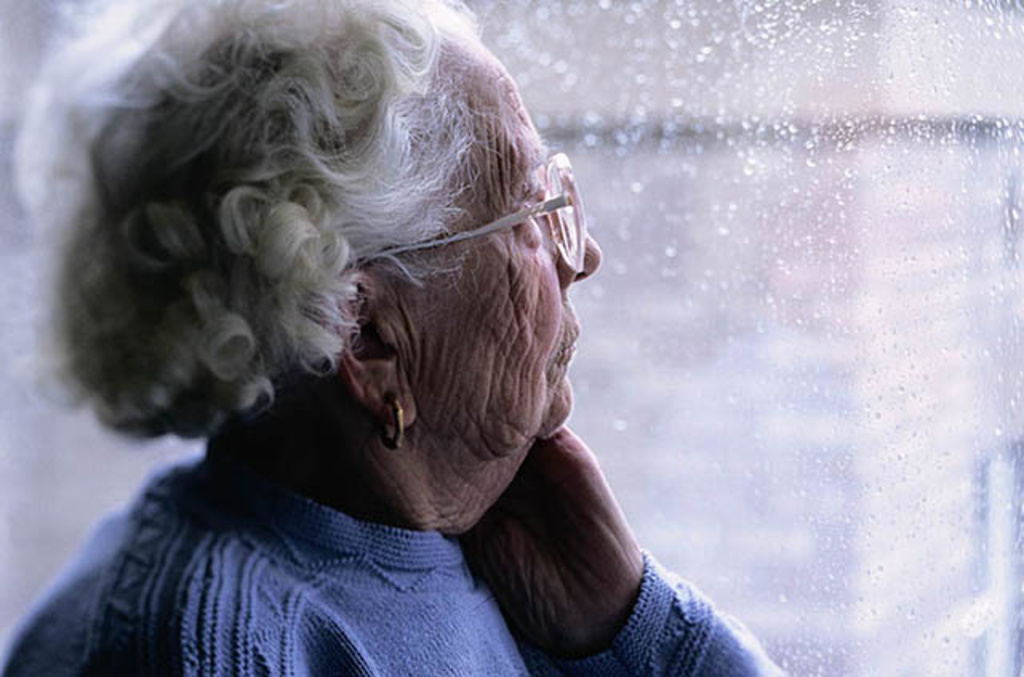
As severe weather season approaches for much of the country, a recent University of Iowa study finds that, compared to younger adults, older adults are more vulnerable when natural disasters hit. Yet the majority of adults age 50 and older in the U.S. may not be prepared for a serious flood, earthquake, tornado, or other natural calamity.
These are among the findings researchers in the University of Iowa College of Public Health recently published online in the American Journal of Public Health. The UI report is based on a 2010 survey that was part of the Health and Retirement Study, which collects social, economic, and health information on adults age 50 and older in the U.S.
To learn more about ways to help seniors prepare for severe weather or other natural disasters, visit the American Red Cross website, the Centers for Disease Control website, or the Federal Emergency Management Administration website.
Only about one-third of the 1,304 adults interviewed said they had participated in an educational program or read information on how to prepare for a disaster. Less than 25 percent had an emergency plan in place. At the same time, nearly one-quarter of these older adults said they live alone, and almost one-third reported being disabled or in fair or poor health. The 21-question survey did not include older adults living in nursing homes or other institutional settings.
“Our analysis underscores that older adults living at home often have special needs and situations that put their health and safety at risk in the face of natural disasters,” says Tala Al-Rousan, M.D., the study’s primary author and a graduate student in epidemiology at the UI College of Public Health. “Yet many older adults report not being adequately prepared for disasters. The oldest respondents, 80- to 90-years olds, were significantly less prepared than 65- to 79-year-olds.”
The researchers noted in the introduction to their report that nearly three-quarters of the people who died in Hurricane Katrina in 2005 were age 60 and older. Al-Rousan says that since the number of older adults is increasing in the United States, it is especially important to understand what prevents them from being prepared and being able to respond in disasters.
“In some cases, communities may offer programs that provide preparedness training and offer shelter during emergencies, but elders are not adequately accessing these resources,” Al-Rousan says. “Our study outlines the problem; other studies are needed to get at the causes and find solutions.
“The problems we found are troublesome, but they shouldn’t be insurmountable,” she adds.
About half of the survey respondents said they would not know where to seek shelter if they had to evacuate their home, and about a quarter said they lacked a car or transportation access during emergencies. Individuals with lower incomes were more likely to report not being adequately prepared. Of special concern, 15 percent of the adults surveyed used an electrically powered medical device that could fail during power outages.
The average age of respondents in the study was slightly more than 70 years, and the majority of respondents, nearly 82 percent, were white. Al-Rousan says the study had a few limitations.
“Although it was a national study, it is likely not completely inclusive of all populations types. In addition, the study did not examine where the adults live, and it’s possible that they might reside in areas that are not greatly affected by natural disasters,” she says.
In addition to Al-Rousan, the investigation team included the study’s senior author, Robert Wallace, M.D., UI professor of epidemiology and internal medicine, and director of the UI’s Center on Aging, and Linda M. Rubenstein, UI statistician in epidemiology. Wallace, a co-principal investigator of the Health and Retirement Study, prepared the survey questions that focused on older adults and natural disasters.
Al-Rousan became interested in disaster preparedness after reading about elders who perished during Hurricane Sandy and when Wallace, her mentor, told her about the Health and Retirement Survey and the set of questions he had prepared. She plans to study ways to help increase the disaster readiness of older adults.
“We might be able to find ways for health care professionals to be more active in disaster preparedness education, or to involve retirement-based organizations and communities in training or tool kits preparation,” Al-Rousan says. “Families can also play a role by thinking about how their older relatives could be impacted by natural disasters and engaging in their preparedness.”
The Health and Retirement Study, which is based at the University of Michigan, receives funds from National Institute on Aging and the Social Security Administration.
Editors note: This story includes information provided in an American Journal of Public Health Q&A with Tala Al-Rousan published Jan. 24.